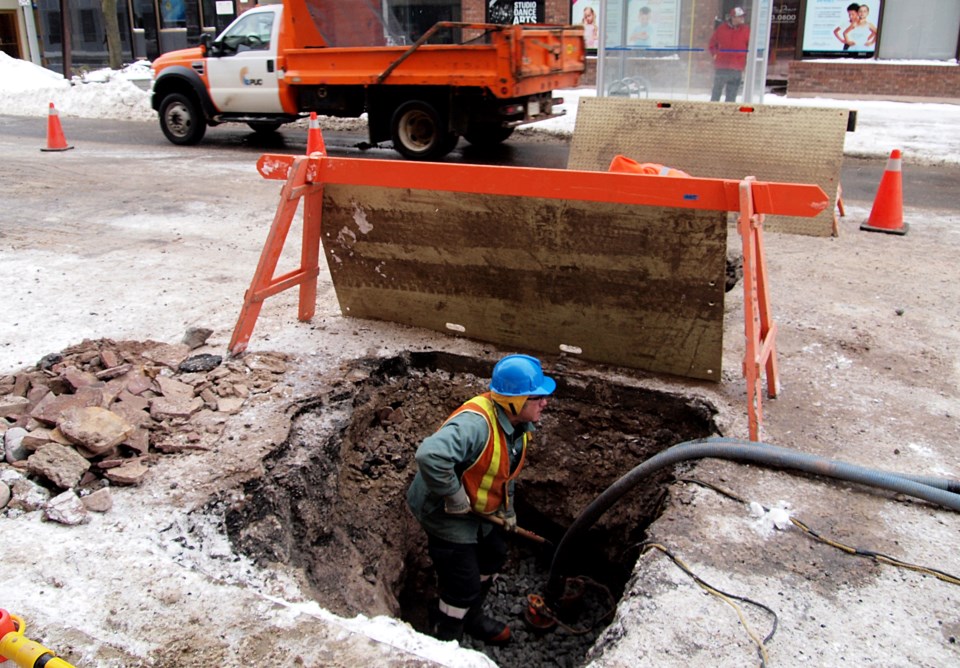A very small percentage of water mains carrying drinking water to residents of Sault Ste. Marie have asbestos in them, PUC has confirmed. Although there is some debate on the subject, Health Canada has concluded that there is no evidence ingesting the substance is harmful to your health.
Recently, an episode of the CTV television program W5 reported that asbestos-cement pipes are used in many municipalities across the country to deliver drinking water to residents.
W5 reached out to more than 100 towns, districts and municipalities to ask about the use of the pipes. Roughly 90 per cent of the communities that responded said asbestos-cement pipes were still in use for the drinking water supply.
According to the report, about 68 per cent of the water mains in Millstream, BC are asbestos-cement pipes. In Prince George, BC it's 67 per cent.
Last month, Barbara Syme of Sault Ste. Marie reached out to the local public utility to ask if Sault Ste. Marie was among the communities that still use the asbestos-cement pipes for its water mains.
After two follow-up calls and almost a month of waiting, Syme reached out to SooToday to see if an answer to her request could be found.
"This leads me to a growing suspicion that the news is not good," Syme said, about the initial lack of response she received from PUC.
A few hours after SooToday contacted PUC, Syme received a phone call from the public utility with some answers.
PUC confirmed about 1.5 per cent of the 468 kilometres of underground water mains in the utility's sytem are made of asbestos-concrete, said spokesperson Jairus Patterson in an email to SooToday.
Sault Ste. Marie was not one of the communities W5 reached out to for its report.
Patterson noted PUC stopped installing asbestos-concrete pipes in its water mains in 1969 and, according to its records, never had more than 2 per cent of that pipe in its system. That means any of the pipe still in use underground in Sualt Ste. Marie is more than 50 years old.
"PUC follows all guidelines laid out by Health Canada, and we continue to do so," said Patterson. "Health Canada states there’s no consistent, convincing evidence that asbestos ingested through drinking water is harmful to your health."
The negative health effects of inhaling asbestos has long been known, but Health Canada says the risk of being exposed to airborne asbestos from drinking water is very low.
"Research has shown very low percentages of asbestos fibres transferring into the air from humidifiers or showers," Health Canada said in a report on asbestos in drinking water.
Health Canada says standard water treatment is effective in removing asbestos fibres from drinking water supplies, but notes that asbestos fibres can be released by asbestos-concrete pipes that carry drinking water to your home.
Syme said she is relieved there is a smaller percentage of water mains in Sault Ste. Marie using the pipes than in other communities covered by the W5 report.
"But I am not sure I quite trust the science that is saying it isn’t hazardous at certain levels — especially when you are talking about ingesting it into the body," she said.
